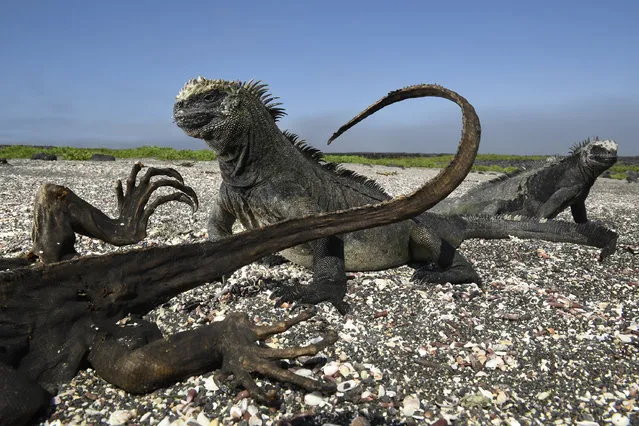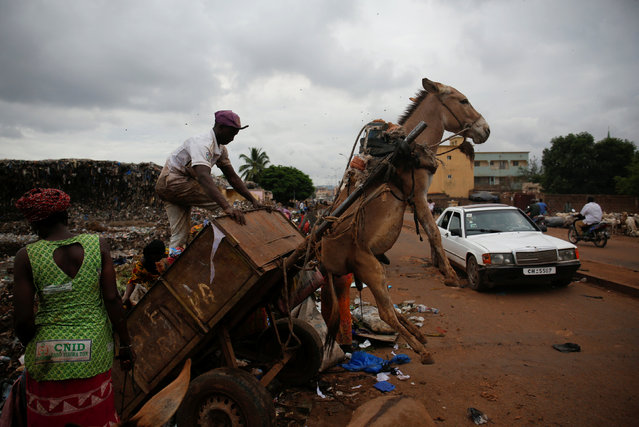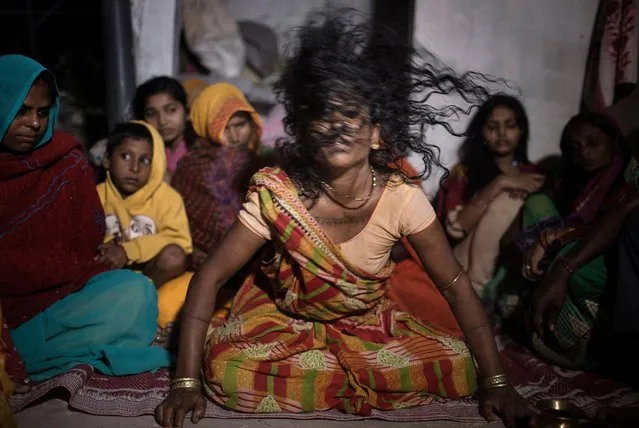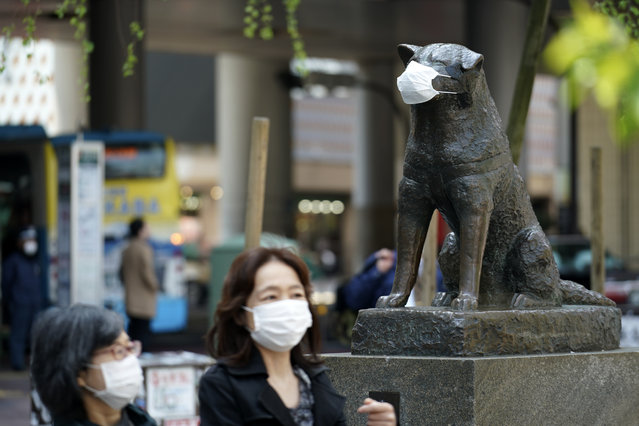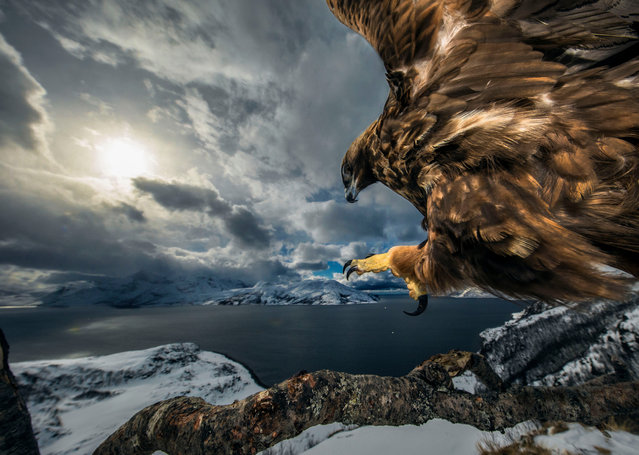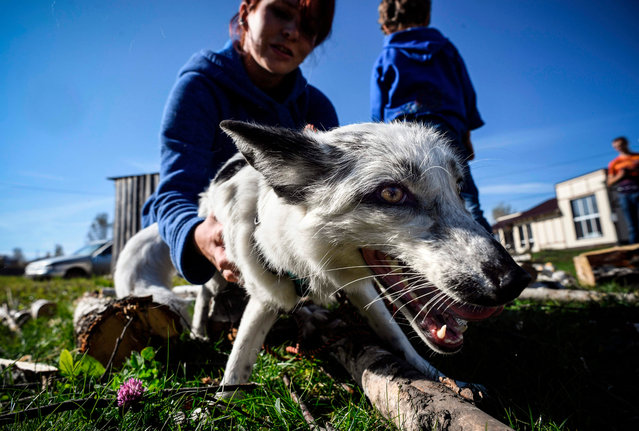
In this picture taken on June 24, 2017 participants take part in the “Women's Beautiful Buttock series” contest shopping mall in Shenyang, Liaoning province. Ladies from different parts of China gathered in Shenyang to show off their perfect curves during the competition. While it is unclear who ended up taking home 1st place, it looks like everyone had a good time regardless of whether or not they won the title. In November 2016, Brazil held a similar competition, Miss BumBum, which was attended by more than 10 million people. Erika Canela, a 24-year-old beauty from Bahia won the main title of the contest. (Photo by AFP Photo/Stringer)
28 Jun 2017 08:14:00,post received
0 comments

